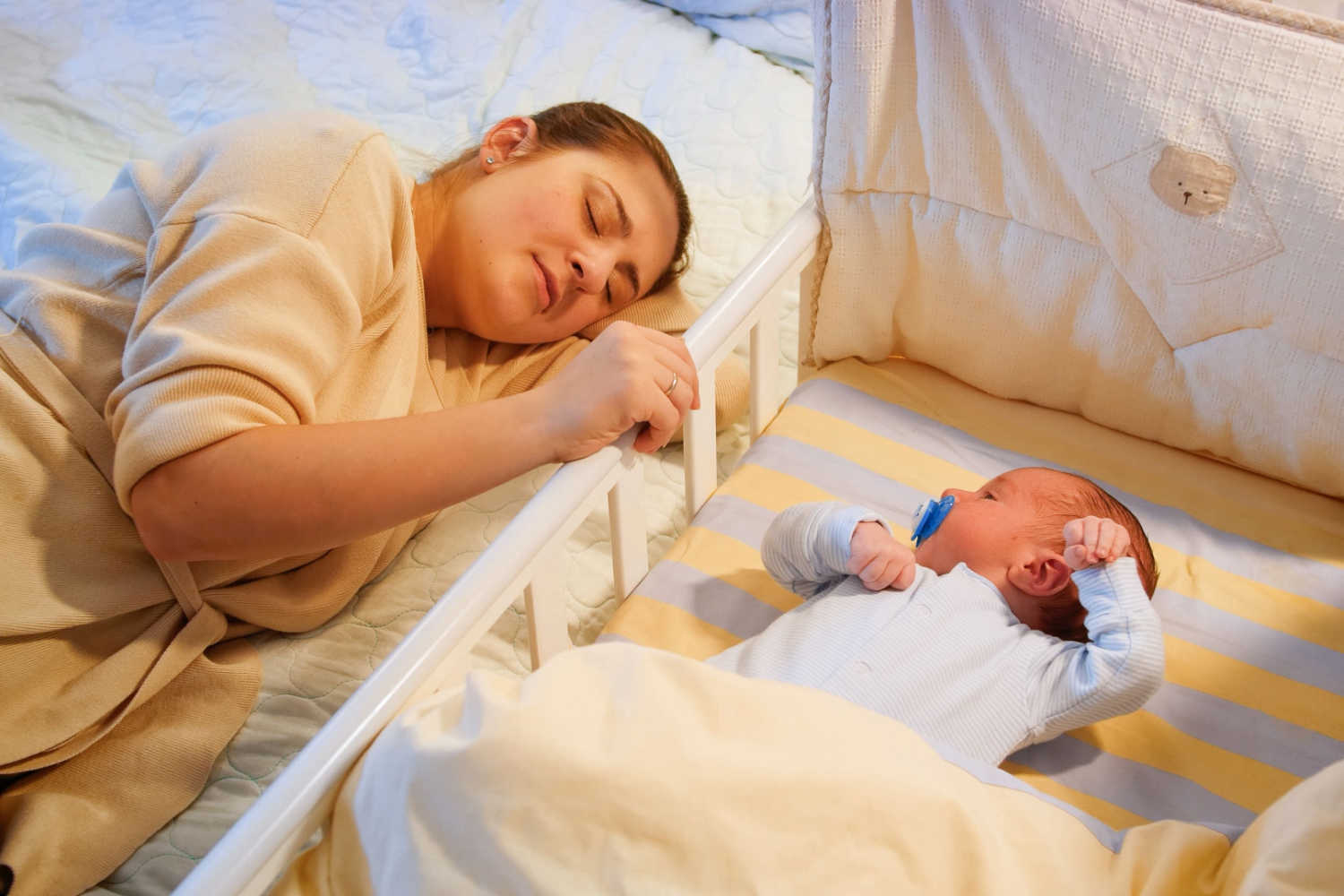
All You Should Know About Newborn Pee And Poop In The First 24 Hours After Birth
5 min readWritten by Editorial Team


Post-delivery, whether normal or C-section, most women feel completely dazed. But it is during this time that some important things need to be taken care of. For instance, the baby should be made to breastfeed, and the mother must keep a tab on the newborn pee and poop for the first 24 hours to ensure that everything is normal.
If you notice anything unusual, you must bring it to the notice of your doctor; it may be normal, but it is better to be safe. Here are some points that you may want to keep in mind regarding the newborn pee and poop if you have just delivered a baby or are about to deliver soon.
In This Article
- Notes On A Newborn Baby’s Urine
- Notes On A Newborn Baby’s Stool
- What Will My Baby’s Poos Be Like If I’m Breastfeeding?
- What Will My Baby’s Poos Be Like If I’m Formula-Feeding Him?
- When You Need To See The Doctor
- FAQ’s
Notes On A Newborn Baby’s Urine
The first 24 hours of your baby’s life will give you good practice in changing diapers. If you are breastfeeding your newborn, expect six to eight wet diapers a day. Since formula-fed babies take in more fluids than breastfed babies, you may need to change their nappy up to 10 times a day. Also,
- There is a possibility that a newborn might urinate just once during the first 24 hours, but that’s absolutely normal. The number of times gradually increases with each passing day, and by day 6, they will start urinating about ten times a day
- It may be a bit difficult to detect how many times your baby has peed if you are using disposable diapers. For better detection, you may want to use cloth diapers. These are safe for the baby too
- Another issue about newborn urine that most moms may be worried about is the color. On the first day, it could possibly be orange/pink colored. Some even feel that it resembles blood in terms of appearance. However, it is nothing but a byproduct of bilirubin and also an indication that your baby needs more fluids. The color gradually changes to pale orange, bright yellow, lemon yellow, and finally light yellow in the next couple of days
- Only after about five days and despite consuming enough fluids, if your baby doesn’t urinate every 4 hours, you need to consult your pediatrician to ensure that everything is fine
Notes On A Newborn Baby’s Stool

It is a fact that everyone understands—a newborn baby’s stool pattern is not similar to adults. The frequency and the consistency vary from one baby to the other as it also depends, among other factors on how the baby is fed.
- Some babies pass stool immediately after being fed, which is a normal gastrocolic reflex where the stomach is activated as soon as it is filled. This is nothing to worry about
- If the stools are too hard or dry, it indicates that your baby is not getting enough fluids or is losing fluids because of heat or any other illness
What Will My Baby’s Poos Be Like If I’m Breastfeeding?
The bowel movements of babies who are breastfed vary widely. Some babies may not pass stool for four to five days in a row, while others may do it after every feed. Colostrum, which is your first milk, is essential for newborns as it protects them from various infections and also acts as a laxative.
The very first stool color may shock you. It is usually green-black and sticky. This is called meconium which is present in the baby’s intestine before birth. The colostrum, which is thick yellow milk, will help to push meconium out of your baby’s body. In the days following that, once your milk starts to come in, the stools will still be a mixture of meconium and milk bi-products.
It will continue to have a tinge of green and yellow. Gradually, it will normalize. If the baby is breastfed, the stools are normally light yellow with tiny seed-like particles and have a slightly sweet smell to it. Sometimes newborn stools are confused with diarrhea because of the texture.
What Will My Baby’s Poos Be Like If I’m Formula-Feeding Him?

If you are bottle-feeding your baby, then they will pass stool a few times in a day. But then like we said earlier, every baby is different, and so is their pooping pattern. Formula-fed babies can pass stool several times per day or can poop once every other day.
If the baby is formula-fed, the stools may be dark or yellow and firmer. His poop may have toothpaste-like consistency, will be bulkier like that of an adult, and may have a strong smell to it. Since formula milk is not fully digested like breast milk, formula-fed babies are more prone to constipation than breastfed babies.
When You Need To See The Doctor
Normally there is nothing much to worry about in the first 24 hours. But you will need to consult the doctor regarding newborn pee and poop under the following conditions.
- If your child is finding it painful to urinate, it could be a sign of infection and needs immediate attention from the doctor
- If the pinkish stain in the urine persists
- Actual blood in the urine, sometimes accompanied by abdominal pain
- Blood and mucus in the stool
All this information might be overwhelming, but it is not meant to scare a new mom. It helps to know a few basics, so that you don’t panic when you see something unusual. Usually, when it comes to babies, moms get worried at the slightest variation, which may be quite normal. Therefore, it is necessary to know these so that you know when actually to consult your pediatrician.
Our best wishes to new moms who have embarked on this beautiful new journey filled with many wonderful moments. Make sure you don’t miss any of them.
FAQ’s
1. How Much Should A Newborn Poop In The First 24 Hours?
Your newborn should have one or more meconium stools during the first 24 hours of life. Your newborn’s first poop won’t have an unpleasant odor. It will be a dark, tar-like substance. Intestinal obstructions, an undeveloped anus, and a meconium plug are all things that physicians check for when a baby takes longer than this 24 hours to pass stool.
2. How Often Should A Newborn Pee In The First 24 Hours?
In the first 2 days, urine produced by a newborn is concentrated and often contains chemicals called urates, which can turn the diaper orange or pink. If a newborn does not urinate within the first 24 hours of life, the doctor tries to find out why. A delay in starting to urinate is more common among boys.
3. How Soon After Birth Should A Baby Pee And Poop?
The first bowel movement, or meconium, should occur during the first 24 hours following delivery for all babies. Similarly, a newborn infant will urinate for the first time between 12 and 24 hours after delivery.

Editorial Team,
With a rich experience in pregnancy and parenting, our team of experts create insightful, well-curated, and easy-to-read content for our to-be-parents and parents at all stages of parenting.Read more.
Responses (0)
Want curated content sharply tailored for your exact stage of parenting?
Related articles

Top 10 Amazing Baby Boy Photoshoot Ideas to Try at Home

Liver Diseases in Babies – Causes, Symptoms and Treatment

Finger Painting For Babies – How it Helps in Baby’s Development

Room Sharing With Your Baby – Top Tips to Help Parents

Millets For Post-Delivery and Breastfeeding Mothers – Everything You Need to Know

White Noise For Babies – Is it Safe, Pros and Cons
Sponsored content
Discover great local businesses around you for your kids.
Get regular updates, great recommendations and other right stuff at the right time.





